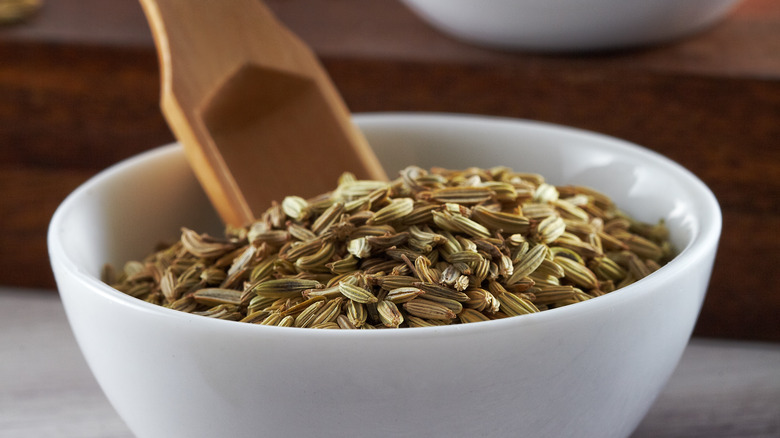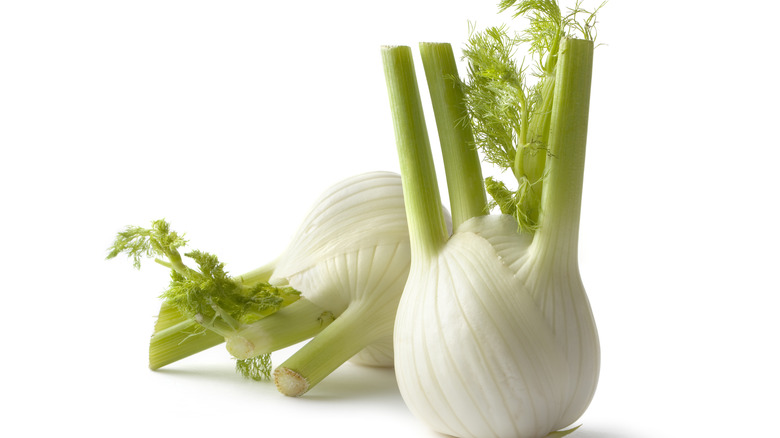The Extra Ingredient That Gives Swedish Meatballs A More Elevated Flavor Profile
Swedish meatballs: The first dish you probably think of when Scandinavian cuisine comes to mind (even if they're not originally from Sweden). Sure, there are other signature foods — lingonberry jam, lutefisk, salted licorice (seriously) — but no other Swedish food has attained recognition like those good old Swedish meatballs. Heck, you've probably eaten some, whether at IKEA or from the frozen section of the grocery store. You might've even made them yourself at home; they're not super challenging to prepare.
Meatballs are common to dozens of cultures; much like the concept of dumplings, grinding up meat and making it into a sphere seems to be a natural inclination of the human mind no matter where you're from. And Swedish meatballs certainly get their uniqueness from, say, Italian meatballs by being topped with gravy as opposed to something like tomato sauce. But there's another way to make your Swedish meatballs stand out involving a secret ingredient you probably aren't using enough: fennel seeds.
Fennel doesn't really taste like anything else
People describe fennel as tasting like licorice, but that's not exactly right — in truth, it just tastes like fennel. We don't really have something else to compare fennel to closely because its flavor is all its own. Much like anise (the other food typically compared to the black candy), the fennel plant also isn't related to licorice. The fennel plant looks like an allium (the family that includes onions and garlic), but it's actually part of the carrot family, and it doesn't taste anything like either of those things. Licorice is pretty much the closest we can come, but that's an unfair comparison because a lot of people who truly can't stand black licorice have no problem with fennel.
Regarding Swedish meatballs, fennel has a light, slightly sweet, vaguely citrusy flavor that provides an excellent counterpart to the more savory notes of the meatballs and gravy themselves. Fennel's superpower is its taste is unique enough to distinguish itself in dishes, while also being mild enough that it doesn't overwhelm anything. This works particularly well in Swedish meatballs, which tend to be mild enough to accept other flavors but can be in danger of being overwhelmed.
Fennel has plenty of uses aside from Swedish meatballs
Fennel seeds have plenty of uses beyond Swedish meatballs; they're a surprisingly versatile ingredient credited to their distinct yet relatively mild flavor. They work very well in homemade tomato sauce, giving it even more of a fennel punch than actual pure fennel does. They work well in spice rubs, adding an original flavor note without overpowering what they're paired with. They're even used in India as a common cure for bad breath, both for their propensity to fight odors and for increasing saliva production, washing away bad-smelling bacteria in the process.
All in all, fennel is a great secret ingredient to keep in your culinary arsenal when you want your dishes to taste unique but don't want to risk their flavors going too far out there. Try it sometime; you'll probably eagerly add it to your regular cooking tool kit.


